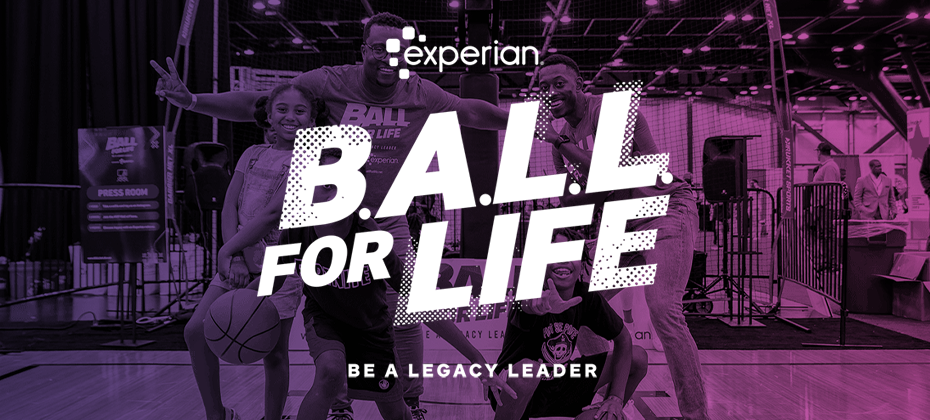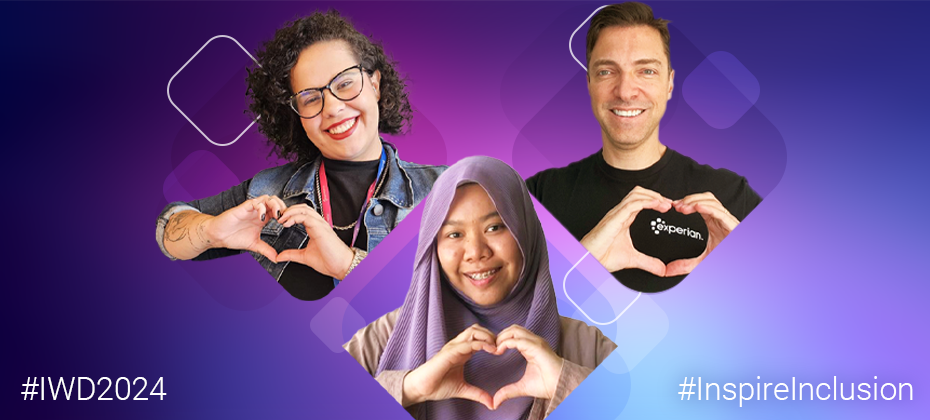
At Experian, we often say our people are our biggest superpower – and today, I’m thrilled to share that this belief has been recognised once again. Experian has been named one of the 2025 World’s Best Workplaces™ by Fortune and Great Place to Work® for the second year in a row.
This achievement reflects the culture we’ve built together – one that’s welcoming, inclusive, and rooted belonging. It’s a celebration of every colleague who brings their whole self to work, who lifts others up, and who powers opportunities for our clients, consumers, and communities.

We’ve made it our mission to create a workplace where everyone feels included, respected, and empowered. That’s why we’re proud to have earned top scores on the Corporate Equality Index and the Disability Equality Index, and to be recognised with the Outie Award for Workplace Excellence and Belonging.
These recognitions matter. But what matters most is how our people experience life at Experian. Whether it’s collaborating, innovating, or growing through world-class development of products, services and contributing to our communities, our culture is designed to help everyone thrive.
We’ve also made bold commitments to career development. Initiatives like Global Careers Week, the AI-driven performance coach Nadia, and the NextGen Forum – a global leadership development programme for emerging talent from across our regions – give our people the resources to take charge of their growth and build a “One Experian” mindset.
Being named one of the World’s Best Workplaces is a moment to celebrate but also a reminder to keep aiming higher. The world of work is evolving fast, and so are we. From embracing AI to enhancing our digital workplace experience, we’ll continue to push forward and listen to our people every step of the way.
Questions we will discuss:
- What does “retirement readiness” mean to you, and how can someone tell when they are financially ready to retire?
- Is there a magic number for retirement savings, and what factors should someone consider when setting a retirement goal?
- How can someone estimate their retirement expenses realistically?
- What are some common myths or misconceptions about how much money you need to retire?
- How should Gen Z, Millennials, and Gen Xers each approach retirement planning differently based on their stage of life?
- What are the biggest obstacles people face when trying to save for retirement, and how can they overcome them?
- How can you balance saving for retirement with paying off debt or supporting family today?
- What tools, calculators, or strategies can help people figure out if they’re on track for retirement?
- How can people prepare for unexpected costs or life changes that could impact their retirement plans?
- What’s one piece of advice you’d give someone just starting—or restarting—their retirement savings journey?
| Columns 1 | Column 2 | Column 3 | Column 4 |
|---|---|---|---|
| Row 1 Col 1 | |||
| Row 2 Col 1 | |||
| Row 3 Col 1 | |||
| Footer 1 | Footer 2 | Footer 3 | Footer 4 |

Credit Chat
Stretching your Dollars: Practical Tips to Cut Costs and Save More
February 5, 2025 3-4 PM ET
- What does “retirement readiness” mean to you, and how can someone tell when they are financially ready to retire?
- Is there a magic number for retirement savings, and what factors should someone consider when setting a retirement goal?
- How can someone estimate their retirement expenses realistically?

Greater transparency in buy now, pay later activity is key to helping consumers build their credit histories and supporting responsible lending. We have members of the military right now right out of high school and there’s not a lot of experience managing their own money. They’re quickly thrust into a place where they don’t have a support system to do that. We have members of the military right now right out of high school and there’s not a lot of experience managing their own money. They’re quickly thrust into a place where they don’t have a support system to do that. We have members of the military right now right out of high school and there’s not a lot of experience managing their own money. They’re quickly thrust into a place where they don’t have a support system to do that. We have members of the military right now right out of high school and there’s not a lot of experience managing their own money. They’re quickly thrust into a place where they don’t have a support system to do that. We have members of the military right now right out of high school and there’s not a lot of experience managing their own money. They’re quickly thrust into a place where they don’t have a support system to do that.
Experian North AmericaScott Brown, Group President, Financial Services

While cheering on your favorite tournament team during March Madness, basketball fans can become MVPs in financial literacy with Experian’s B.A.L.L. for Life™ (Be a Legacy Leader) gesture-controlled game. On the virtual court, the game can help students create their own shining moment in their financial health journey. The B.A.L.L. for Life program helps young adults and their families set up a game plan to building generational wealth; the gesture-controlled game tests players’ knowledge about credit. Credit and financial coaches teach the basics of budgeting, saving, credit, investing, homeownership and more. B.A.L.L. for Life debuted at the 2023 Iverson Roundball Classic, for which Experian has supported as the exclusive financial literacy partner since 2022. Back then, a younger Cason Wallace (now with the Oklahoma City Thunder) talked with our Chief Diversity and Talent Acquistion Officer Wil Lewis and Experian partner and recording artist Lecrae about the importance of understanding money matters. B.A.L.L. for Life serves as a catalyst for engaging with young adults and people who are credit invisible through live events and digital financial education. It powers in-person experiences such as the #IYKYK Pitch Competition (If You Know You Know) featuring HBCUs across the country, and The Legacy League Game Show which was part of the National Urban League’s 2024 Empowerment Summit. B.A.L.L for Life kicked off its college tour in November at the University of Texas San Antonio; Shaw University and Morgan State University will be its next stops in April. To learn more about B.A.L.L. for Life™, visit experian.com/legacy.

Happy International Women’s Day! Across the globe, we have celebrated this week with special events in-person and virtual, featuring best-selling authors, Experian leaders, and topics to further our team’s professional and personal growth. Volunteer events to brought us together and provided opportunities to give back to our communities. This year’s International Women’s Day theme, “Inspire Inclusion” could not be a better fit for Experian. “At Experian, we understand that promoting gender equality is not just a core principle; it’s a strategic pillar for nurturing our growth. We remain firmly committed to creating a diverse and inclusive workplace. The contributions of women are fundamental to our success, underscoring the importance of creating an environment where all individuals, regardless of gender, have equal opportunities to thrive,” says Jennifer Schulz, North America Chief Executive Officer and Global Ambassador of the Women in Experian employee resource group (ERG). Global and business unit ambassadors from our Women in Experian ERG share how to Inspire Inclusion every day. Helen Emmett — Chief Financial Officer for Global Financial ServicesI inspire inclusion by consciously ensuring that every talent, performance and recruitment review is undertaken with a diversity and inclusion lens. I won’t recruit any role without a diverse shortlist and with goals for each job level. Actively mentoring and sponsoring female talent is important, as is calling out teams where diversity is not at acceptable levels. Charlotte Gillan — Global Head of TaxOur diversity is a very visible value at Experian; inclusion is tougher to get right, particularly post-pandemic. If we just have a diverse team, we won’t win. To win, we need people to bring different thoughts and experiences to the table, call or meeting. If we are inclusive, we need to ensure people are listened to and heard. One focus area for me is to really listen and then ask what people think and why. Sometimes this can lead to new ideas, new processes and innovations Marcela Velasco — Spanish Latin America Vice President of Human ResourcesI generate spaces for continuous and open communication, recognize and celebrate individual differences. I create an environment where everyone feels valued, respected, and empowered. Inclusive leadership is not only a responsibility, it’s also an opportunity to create a more enriching and productive work environment. Maria Pou – North America Senior Director of Consumer Information Services Product OperationsI inspire inclusion by actively seeking differences in views and perspectives from a place of love and wanting to understand. I want everybody I come in contact with to feel valued and respected. Rodrigo Rodrigues — Vice President of Experian Information Technology ServicesInvest in science, technology engineering and mathematics (STEM) education for girls and underrepresented communities. To build a more inclusive future in technology, we must start by addressing the pipeline. Encouraging participation in STEM from an early age is crucial. I advocate for companies and organizations to support programs that expose girls and students from underrepresented communities to technology, offering scholarships, internships, and mentorship programs to help them pursue careers in tech. Maryam Damavandi — North America Senior Vice President and ControllerYou can develop an inclusion mindset by being open to differences in ideas, viewpoints and way of thinking and asking difficult questions when having authentic conversations with diverse individuals. Educate yourself with challenges that diverse individuals face. Being aware can go a long way but having a voice, especially when something isn’t right can make a difference. Sumeeta Maxwell — Chief Human resources Officer for Experian Global Technology and Software SolutionsSupport the women around you and speak up for them if needed. Remind colleagues in real time of the actions that aren’t inclusive like when they interrupt. Be clear on how you want to be treated. Seek feedback – and do something with it. The women who have your back will tell you the truth!

Recent technological advancements are ushering in a new era of innovation for businesses and consumers but can also help perpetuate fraud. Today we released our annual Future of Fraud Forecast, highlighting five fraud threats that businesses and consumers should be wary of this year, which include: Generative AI accelerates DIY fraud: The explosive popularity of generative AI has brought many benefits, but it’s also made fraud more accessible. Experian predicts fraudsters will use generative AI to accelerate “do-it-yourself” fraud with a wide range of deepfake content, such as emails, voice and video as well as code creation to set up scam websites and perpetuate online attacks. Fraudsters may also use generative AI to socially engineer “proof of life” schemes. Using stolen identities, fraudsters will leverage generative AI to create fake identities on social media. They can then interact online with these new profiles that look like a real consumer. This could dramatically increase the number of fraud attacks. To safeguard customers, companies will likely have to utilize multilayered fraud prevention solutions that “fight AI with AI.” Branches are cool again: Although there’s been a substantial migration to digital lending experiences, many consumers are heading in-person to bank branches to open new accounts or get financial advice. Consumers are doing this as they want to feel safer and think they’re avoiding online security risks by being in-person. When it comes to verifying identities at the branch, there can be human error or oversight that can happen in-person. According to an Experian report, 85% of consumers report physical biometrics as the most trusted and secure authentication method they’ve recently encountered, but the measure is only currently used by 32% of businesses to detect and protect against fraud. Experian forecasts that lenders will introduce more digital identity verification steps, such as physical biometrics, at branches for in-person account openings to protect legitimate customers and mitigate losses. Retailers hit with empty returns: With a rise in online shopping, fraudsters have found creative ways to scam some retailers and small businesses. The customer says they’re returning their purchased item but when the business receives the box, it’s empty. The customer then says they returned the product and it must have gotten lost in the mail. Experian predicts that more criminals will use this method to keep merchandise in 2024, leaving businesses with lost goods and revenue. Synthetic identity fraud will surge: During the pandemic, many fraudsters created synthetic identities but then quickly found easier methods to steal funds through various aid programs. Though they may have been dormant, these synthetic identities now have a few years of history. Experian predicts this will make it easier to elude detection — leading to fraudsters using those dormant accounts to “bust out” and steal funds over the next year. Businesses will need to collaborate more closely than ever with their fraud-prevention partners to review their current portfolios for synthetic identity accounts. Fraudsters expand into cause-related and investment deception: From fake GoFundMe campaigns, social media giveaways, investment opportunities and text fraud, fraudsters are employing new methods that strike an emotional response from consumers with cause-related asks or too-good-to-be-real offers to gain access to consumers’ vital, personal information. Experian predicts that these deceptive cause-related methods will surge in 2024 and beyond. To avoid becoming victims, consumers will have to be extremely cautious and confirm these opportunities, charities or texts are from the intended party before interacting with them. To mitigate fraud in 2024, businesses need to work with a trusted partner to implement a multilayered approach to identity verification and fraud prevention. Experian offers a full suite of automated tools that harness data and analytics to detect and prevent fraud. Learn more about Experian’s fraud prevention offerings here and register for our webinar for a deeper dive into these five fraud predictions and other emerging fraud trends.
2024 Best Place to Work for Disability Inclusion


